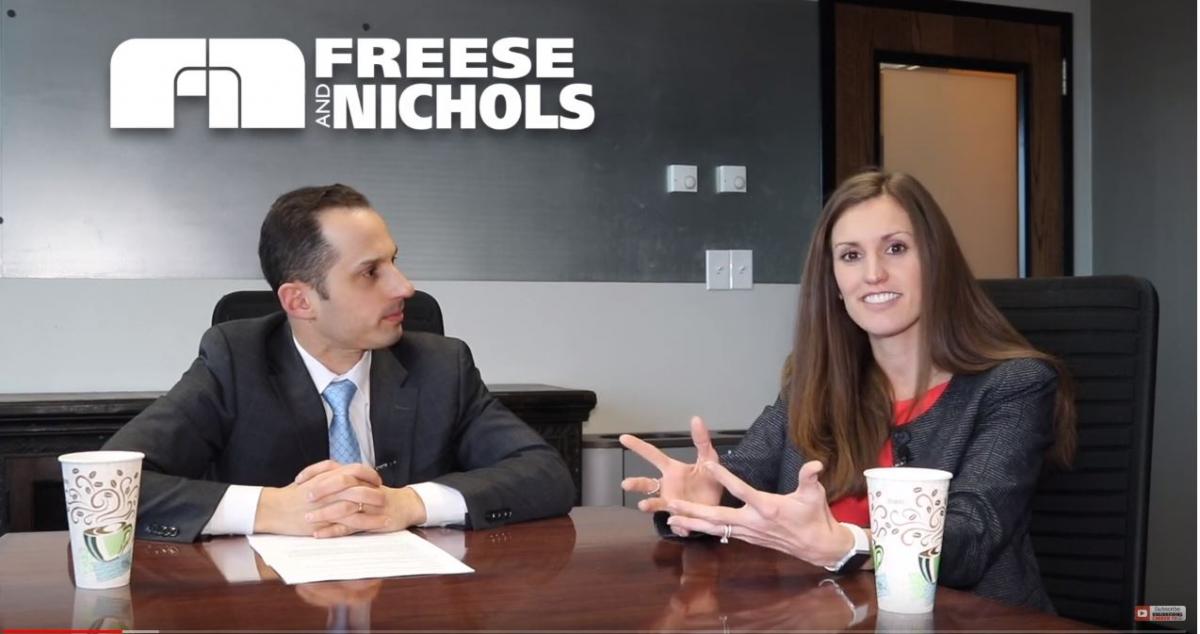How to Deal with Difficult People
 It’s no secret that we’ll deal with difficult people throughout our lives and careers.
It’s no secret that we’ll deal with difficult people throughout our lives and careers.
Working in the architecture/engineering/construction industry, we work with people every day to see our projects to completion, whether it’s clients, stakeholders, the public and our own internal teams. It’s a necessary skill to know how to deal with difficult people, and it isn’t really taught in college.
Stephanie Buckingham, Organizational Development, was recently featured in The Civil Engineering Podcast, produced by Anthony Fasano, PE, and the Engineering Management Institute.

Click here to listen to the whole podcast or watch it here on YouTube, but here are a few of her tips she mentions for how to make sure the conversations you have every day. (Freese and Nichols’ Grady Hillhouse, PE, was also featured in the podcast last year. He spoke about teaching others about engineering through his YouTube channel. Listen to the podcast with him here.)
Consider where the person is coming from. Our upbringing and backgrounds affect the way we interpret situations. For example, if you grew up thinking that being on time was important, you’ll probably judge people who are late like it’s a bad thing. But maybe the person who isn’t punctual, it was important for him/her growing up. Our upbringing has a lot to do with how we interpret things – good and bad.
Start the conversation now. Our chairman of the board Bob Pence says, “Bad news doesn’t get better with time.” With difficult people, the longer you wait to have a conversation and address the problem, the worse it will get. Bitterness with every time you see that person leaves so much more room to look for things to go wrong. Using the formula from Crucial Conversations helps give you a formula to plan out the tough conversation to help you untangle all the complicated pieces involved.
When you see a difficult conversation coming up, plan it out. Put a plan in place that it doesn’t happen again so you can get back on track. Make expectations clear that we’ll talk about specific topics. If you don’t plan, you might say something you’d regret later and hurt that relationship.
Have the right attitude. When you don’t start with the best assumption going in about someone, the conversation is doomed from the beginning.
Focus on the process and not people. Don’t point fingers, and when you do people get defensive. Look for ways on how you can help the process of things.
“How To Deal With Difficult People” is one of the many classes Freese and Nichols University offers to employees and clients. Topics range from more personal skills, such as presentation tips and emotional intelligence, to more technical, such as professional ethics and wastewater engineering utilities basics. See a full list of courses here.

